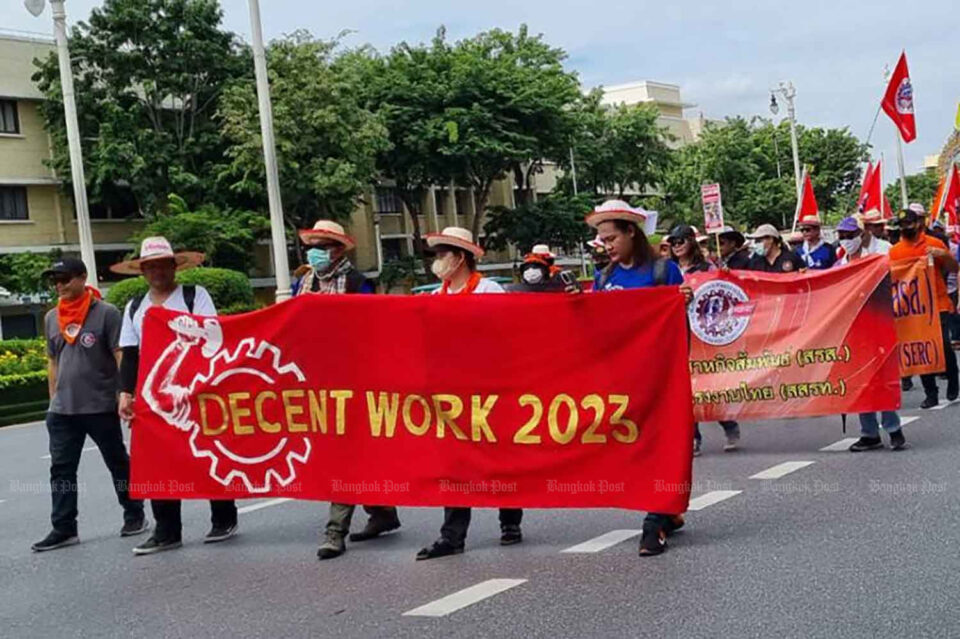At a rally held on Saturday to commemorate World Day for Decent Work, about 600 employees urged the government to put an end to what they deemed to be unjust working conditions and to encourage job security.
Members of the Thai Labour Solidarity Confederation (TLSC), the State Enterprises Workers’ Relations Confederation (SERC), and the International Labour Organization Convention Mobility Network participated in the demonstration on Ratchadamnoen Avenue in Bangkok.
Labor organizations are pleading with the government, particularly Labour Minister Phiphat Ratchakitprakarn, to abolish short-term employment or labor contracts in both the public and private sectors, according to TLSC leader Sawit Kaewwan during the gathering.
Additionally, the groups urged the government to abandon any plans to privatize state companies involved in banking, telecommunications, energy, and transportation.
In order to maintain low public utility prices, which lowers manufacturing costs and household spending, Mr. Sawit claimed that the government must run state-owned firms.
Instead of privatizing state enterprises, he advised the government to take into account the State Enterprise Development Bill by the SERC.
According to TLSC consultant Somporn Kwannet, more companies are using contract labor. The contract does not, however, ensure complete benefits and employment security.
The president of the Government Employee Union of Thailand, Osot Suwansawet, revealed that he is a contract employee in public health at the Maharaj Hospital in Nakhon Si Thammarat.
He said that despite earning the federal minimum wage and paying into the Social Security Fund, he is not eligible for pensions or unemployment benefits.
For instance, the Ministry of Public Health employs nearly 200,000 contract employees at public hospitals around the nation. However, their employers are not providing the welfare benefits that labor organizations have wanted for more than 20 years.
Tang, 23, a contract employee at a plant in Chon Buri, claimed it was unfair as permanent employees in the same role received pay of more than 30,000 baht apiece.
“The corporation gives permanent employees an annual bonus worth more than 10,000 baht each. Although [contracted workers] contribute to the company’s profits, we are not equally eligible for perks.





